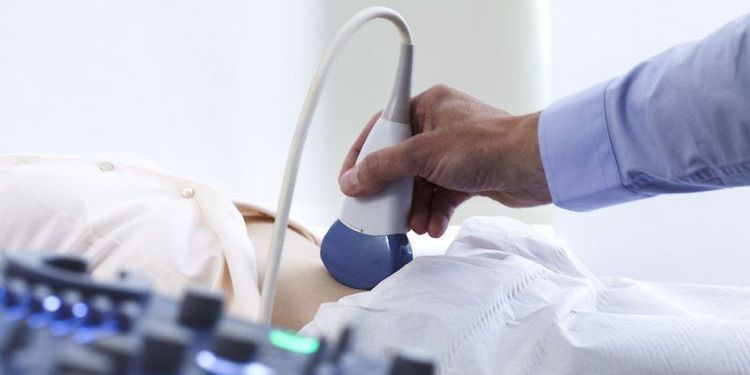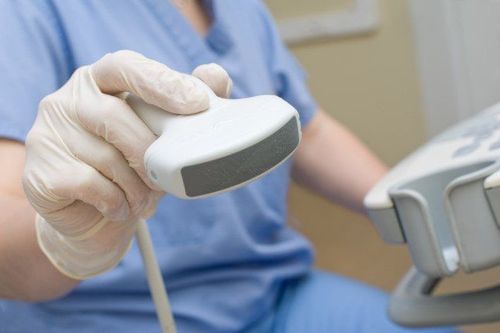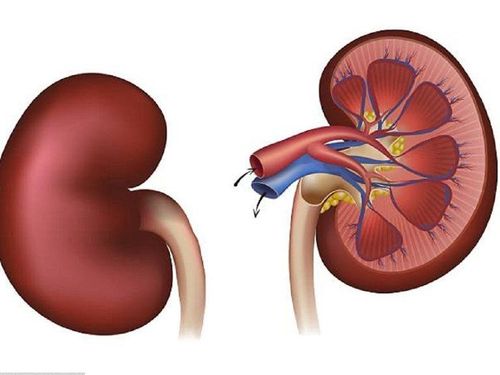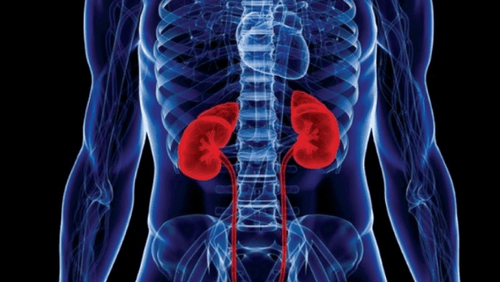This is an automatically translated article.
The article was professionally consulted with Master, Doctor Nguyen Van Huong - Department of Diagnostic Imaging - Vinmec Danang International General Hospital.Kidney failure is a term used to describe the inability of the kidneys to function properly. Measurement of glomerular filtration rate is a test to diagnose kidney failure. Renal ultrasound, MR/CT, and biopsy are ways to find the cause and evaluate the condition. Treatments can address the cause of kidney failure or focus on replacing kidney function.
1. Basic information about kidney failure
The kidneys help maintain the proper electrolyte and fluid balance in the body, remove waste and remove toxins from the blood. The kidneys make urine, which carries waste products and excess fluid away. They also make hormones, which stimulate the production of red blood cells in the bone marrow and strengthen bones.The term kidney failure describes a condition in which the kidneys lose the ability to perform these functions efficiently. A buildup of waste can cause a chemical imbalance in the blood and can be fatal if left untreated. Patients with kidney failure may develop anemia or osteoporosis over time.
Chronic kidney failure can be caused by many different diseases (such as diabetes, chronic glomerulonephritis, hypertension, ... ) and causes kidney function to decline over time. Other conditions can lead to acute kidney failure, such as reduced blood flow to the kidneys (renal infarction), obstruction of the flow of urine (due to ureteral stones), or damage from infection, a side effect of some drugs.
Acute kidney failure can happen quickly and leave permanent damage to the kidneys. In many cases, it occurs in patients who are already seriously ill and require intensive care. Symptoms may include:
Edema Fatigue Blood in urine Shortness of breath High blood pressure Nausea Drowsiness Easy bruising Changes in urination, such as decreased urine output and/or complete lack of it (infertility) urine).

2. Measures to assess kidney failure
There are many causes of kidney failure, and suspected causes will be tested to prove the cause. To diagnose kidney failure, doctors often rely on blood tests to assess the kidney's ability to discharge through the amount of Urea and Creatine in the blood and may order the following additional tests:Kidney ultrasound: This is a way to check imaging using high-frequency sound waves to view the kidneys in real time. This is usually the first test to check the kidneys. Computed tomography (CT scan) combines special X-ray equipment with a computer to create many pictures of the inside of the body. From this image several causes of kidney failure can be detected. Combined with intravenous contrast injection when CT scan can evaluate the function of each kidney. Abdominal CT scan is very popular in medicine, this is a technique used to detect and diagnose many diseases. The form is to use X-rays to observe the structures and details of the body parts to be verified. The results of CT are images of structures in the body displayed on a specialized computer screen. From there, the doctor can assess the condition in all parts of the body. It is very effective in cancer screening and early detection of tumors and providing timely and effective treatment. But its limitation is due to the use of X-rays, so if applied many times, it can cause radiation to the patient. It is not recommended for use in children, pregnant women, in some cases patients receiving contrast may be allergic to the drug.
MRI or CT urogram: This procedure is used to evaluate renal function and urinary tract morphology in patients with renal abnormalities such as blood in the urine to confirm the diagnosis. determine the etiology of the disease and use it to monitor patients with a history of cancer. Kidney scan: This is a nuclear medicine examination. In this technique, the kidneys are evaluated with a radiometer and gamma camera. This test can provide information about both kidney function and urine excretion. Biopsy: This is a procedure where a small sample of kidney tissue is taken under the guidance of ultrasound or CT scan used to confirm the diagnosis, but usually non-invasive imaging tests are usually applied before birth. kidney equipment.

3. Treatment of kidney failure
Treatment options for kidney failure are not the same for every patient and depend on the cause of the kidney failure, but most patients treated for kidney failure require hospitalization. Treatment options are grouped into two groups: treatment of the cause of renal failure and replacement therapy for renal function. Treatments include:Interventional procedures such as ureteral stents and nephrectomy. This procedure involves inserting small stents into the ureter to guide urine down to the bladder or a tube connected to an external drainage bag. Both options are used to unlock the ureter to allow urine to pass from the kidney if this is determined to be the cause of kidney failure. Surgical treatment such as removal of kidney stones, kidney transplant. Dialysis, including hemodialysis and peritoneal dialysis: These procedures remove waste products and excess fluid from the blood and thus replace (some) kidney function. Kidney transplantation is the most complete and effective replacement of kidney function but may not be suitable for all patients. Kidney failure is a dangerous medical condition, so patients need to be periodically examined for early detection, and when there are symptoms of kidney failure, they must be examined and treated aggressively immediately.
Periodic health check is Vinmec's strength due to its well organized, accurate results, continuous monitoring and evaluation of patients, so it can detect kidney abnormalities and possible causes early CKD.
Well-trained personnel, modern machinery, and equipment to be able to treat without leaving complications of kidney failure.
Vinmec International General Hospital uses the SPECT/CT Discovery NM/CT 670 Pro system, with the most modern multi-sequence CT technology of the world's leading medical equipment company: GE Healthcare (USA), for High-quality images help doctors diagnose diseases that need to be investigated early.
Vinmec's medical staff is very experienced, well-trained at home and abroad, will directly advise and support customers in the process of diagnosis and treatment, including with foreign customers.
If you have a need for medical examination at Vimec Health System nationwide, please make an appointment on the website to be served.
Please dial HOTLINE for more information or register for an appointment HERE. Download MyVinmec app to make appointments faster and to manage your bookings easily.
Reference source: radiologyinfo.org













